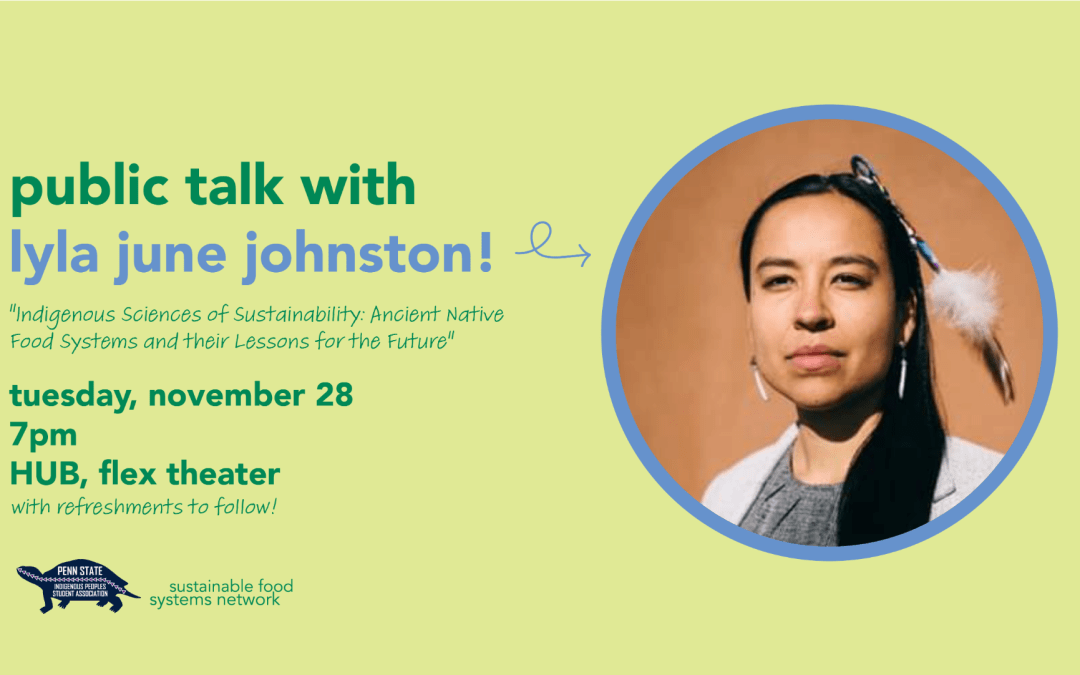Explore ancient native food systems and their lessons for the future in an upcoming public talk with Lyla June Johnston, an Indigenous musician, scholar, and community organizer of Diné (Navajo), Tsétsêhéstâhese (Cheyenne) and European lineages.
Johnston melds together art, culture, and ecology to explain how humanity has, and can relearn to, act as a keystone species, revisiting intuitive wisdom to find our shared path forward.
Both campus and community members are invited to this free talk on Tuesday, November 28 at 7 p.m. in the HUB Flex Theater, or over Zoom. The talk will be followed with a reception and refreshments and is an exciting opportunity to honor history and traditional knowledge during Native American Heritage Month.
Johnston has spent her career using a multi-genre presentation style to inspire personal, collective and ecological healing. People across the globe have been moved by her work. An excerpt from her poem “Indigenomics” reads:
“No matter what color of skin you have, or what language you speak, or where you are from: Us humans, we were made to play in the dirt. Us humans, we were made to love the earth. We were made, to sing, to corn.”
She has won several awards for her work, including the PEO Scholar Award, the Lives of Commitment Award and multiple writing and poetry recognitions.
The event is being hosted by the Plant Science department, the Sustainable Food Systems Network and the Indigenous Peoples Student Association.
The primary organizer of the event is Kirsten Lloyd, an assistant teaching professor in the Department of Plant Sciences. Lloyd noted that Johnston’s message has deeply inspired her in the past, and she hopes that this talk will share that feeling of hope with the greater State College community.
“Lyla deeply understands how humans can both create beauty and cause harm—to each other and to nature—as we are all one,” Lloyd said. “She’s unique in that she knows the ways of both modern and ancient cultures. These intuitive ways of knowing create relationships that transcend the objective, materialistic way that we view the world in Western thinking.”
Lloyd also noted that Johnston uses formal scholarship to document the intuitive and scientific ways Indigenous peoples have shaped living systems, and that this wisdom can guide us to a more beautiful and sustainable way of being.
We hope to see you on Nov. 28 for this empowering talk. Those who can attend the event in person can park their cars in the HUB Parking Deck at an hourly rate, and those who plan to join via Zoom can register here.

